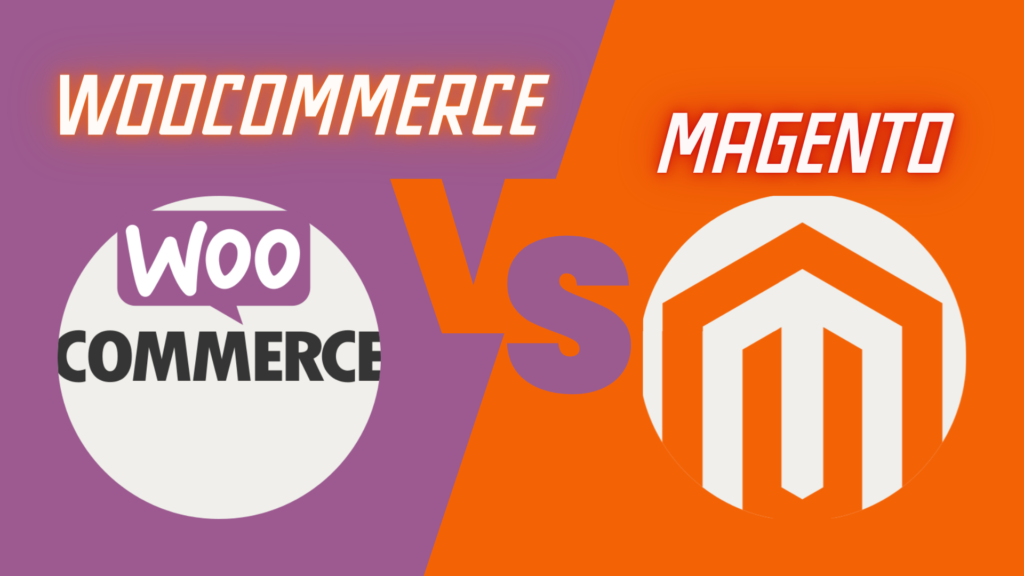
Magento Vs WooCommerce: The Epic Battle for Online Store Dominance!

Introduction: Overview of Magento and WooCommerce Platforms
Magento and WooCommerce are two of the most popular e-commerce platforms today. Each offers unique features tailored to different business needs. Magento, owned by Adobe, is known for its scalability and flexibility. This makes it ideal for large enterprises with complex requirements. On the other hand, WooCommerce, a WordPress plugin, is favored by small and medium-sized businesses. Its user-friendly interface and seamless WordPress integration make it an appealing choice for businesses with limited technical resources.
Both platforms have their strengths and weaknesses. Magento offers more advanced features out-of-the-box, while WooCommerce relies on third-party plugins for added functionality. This allows WooCommerce users to customize their stores easily, but it can lead to compatibility issues. In contrast, Magento’s open-source architecture provides greater customization freedom. Ultimately, the decision between Magento and WooCommerce depends on factors like business size, budget, and technical expertise.
Features Comparison: Key Features of Both Platforms
When comparing Magento and WooCommerce, it’s essential to highlight the key features that set them apart. Magento is renowned for its scalability and support for large e-commerce stores. It excels in managing complex product catalogs, making it suitable for businesses with extensive inventories. Magento’s advanced inventory management system lets users automate stock control, saving time.
WooCommerce, however, stands out for its integration with WordPress. It offers a wide range of themes and plugins that enable businesses to create unique storefronts. The platform’s intuitive interface makes it easy for smaller businesses to set up an online store quickly. Magento’s strengths lie in handling sophisticated pricing structures, while WooCommerce shines in its flexibility. For businesses with straightforward needs, WooCommerce offers a simpler path.
Pricing and Costs: Differences in Pricing Structures
Pricing is another important consideration when comparing Magento vs. WooCommerce. Magento typically requires a higher upfront investment. This includes licensing fees, customization, and ongoing maintenance. Magento is tailored toward large enterprises with more complex needs, which is reflected in its cost structure.
In contrast, WooCommerce follows a more flexible pricing model. It allows businesses to start selling online with minimal initial costs. While WooCommerce is free to use, premium extensions may be needed as the business grows. This scalability lets companies expand their online presence without a large upfront financial commitment. For small businesses or startups, WooCommerce’s pricing structure offers a more cost-effective solution. Understanding these differences helps businesses make informed choices that align with their budget.
Ease of Use: User-Friendliness for Store Owners
User-friendliness is a key factor when selecting an e-commerce platform. Magento offers advanced features but is more complex to navigate. Store owners need a deeper understanding of web development to fully leverage Magento’s capabilities. For businesses prioritizing scalability, Magento may be worth the learning curve.
On the other hand, WooCommerce provides a more accessible experience. Its interface is simple and easy to manage, even for non-technical users. This makes WooCommerce ideal for small businesses looking to set up online stores without extensive training. Store owners seeking a balance between functionality and ease of use will find WooCommerce’s simplicity appealing. Ultimately, store owners must consider how much time and effort they are willing to invest in learning and managing the platform.
Customization Options: Flexibility in Design and Functionality
Customization is crucial in creating a unique online store that resonates with customers. Magento offers extensive customization options, making it highly flexible for businesses needing advanced design and functionality. With Magento, companies can control every aspect of their store, from the product pages to the checkout process.
WooCommerce also offers customization options but is less complex. It allows users to integrate third-party plugins and themes for enhanced functionality. This makes WooCommerce a good choice for businesses looking for basic but customizable solutions. Both platforms enable businesses to tailor their stores to match their branding, but Magento provides more advanced capabilities. Whether a business needs basic customization or complex functionality will influence the platform choice.
Performance and Scalability: Handling Large Volumes of Traffic
For businesses expecting rapid growth or handling large volumes of traffic, performance and scalability are vital considerations. Magento excels in scalability, making it suitable for enterprises expecting high traffic and product variety. Its robust infrastructure allows businesses to manage large inventories and multiple customer interactions seamlessly.
WooCommerce is scalable as well, but it is better suited for smaller to medium-sized businesses. For heavy traffic, WooCommerce may require more optimization and third-party hosting services. In terms of performance, both platforms benefit from caching mechanisms and content delivery networks (CDNs). However, Magento is better equipped to handle complex operations. As businesses grow, Magento’s superior scalability can accommodate increasing demands without compromising performance.
Support and Community: Availability of Help Resources
When evaluating Magento and WooCommerce, the availability of support resources is a critical factor. Magento has a large, well-established community of developers, as well as certified professionals. This provides businesses with access to a wide range of support, including forums, documentation, and expert consultation. Magento also offers official customer support for its enterprise solutions.
WooCommerce has a strong user base, known for its collaborative nature. Its support ecosystem includes forums, tutorials, and an extensive range of documentation. Since WooCommerce is a WordPress plugin, users can also tap into the WordPress community for additional assistance. Both platforms offer valuable help resources, but Magento’s professional network may be more beneficial for businesses with complex needs.
Security: Ensuring Safe Transactions and Data Protection
Security is paramount for any online store. Magento is known for its enterprise-level security features. It provides businesses with advanced security patches and regular updates. Magento’s robust infrastructure is designed to protect against threats and ensure secure transactions. Businesses handling sensitive customer data often choose Magento for its emphasis on security.
WooCommerce, while secure, requires additional plugins for enhanced security features. Since WooCommerce runs on WordPress, it inherits WordPress’s security framework. However, store owners need to take extra steps to secure their stores, such as implementing SSL certificates and security plugins. For businesses dealing with high transaction volumes, Magento offers more built-in security, making it a preferable choice for those prioritizing data protection.
Conclusion: Choosing the Right Platform for Your Business
In conclusion, both Magento and WooCommerce offer powerful features for building successful online stores. Magento is ideal for large enterprises requiring advanced customization, scalability, and security. It’s a robust platform designed to handle complex operations and high traffic. On the other hand, WooCommerce is best suited for small to medium-sized businesses. Its ease of use, flexibility, and cost-effectiveness make it a popular choice for businesses with straightforward needs.
Ultimately, the choice between Magento and WooCommerce depends on factors like business size, budget, and technical expertise. Magento offers greater control and scalability for enterprises, while WooCommerce provides simplicity and flexibility for smaller businesses. By considering these key aspects, businesses can choose the platform that best aligns with their goals, ensuring a successful and sustainable online presence.
Advertise to Grow
We promote the success of your business through the perfect marketing strategy! Trust our agency to achieve amazing results.


